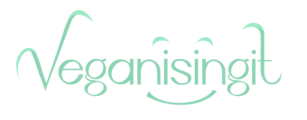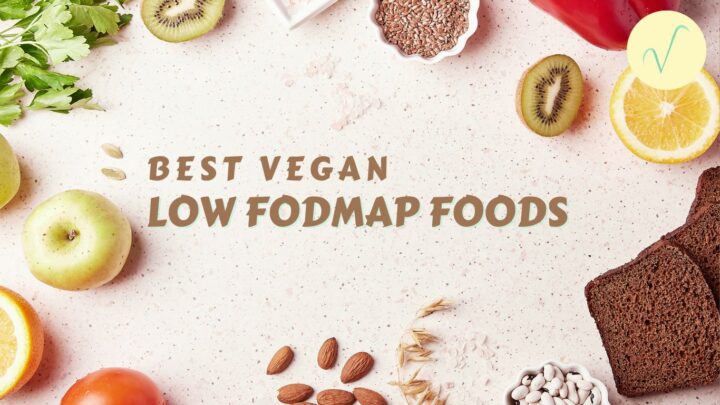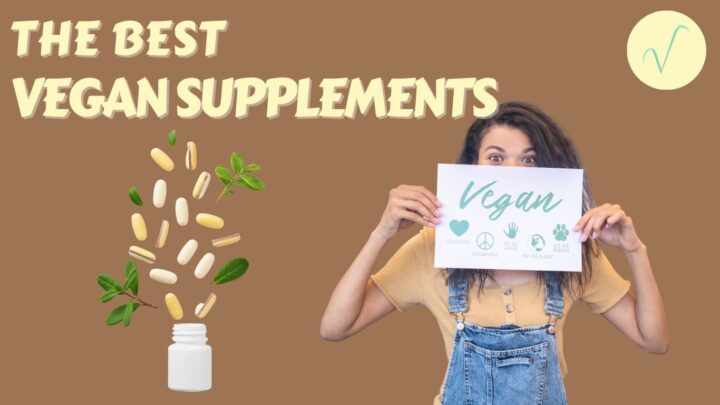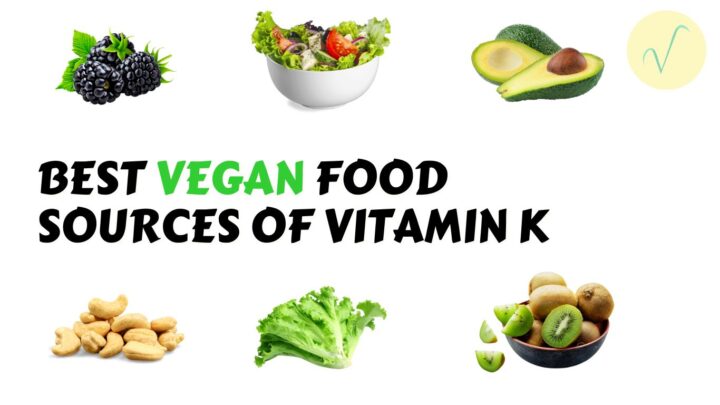Can you get all your nutrition from a plant-based diet? A well-planned vegan diet is a great lifestyle to abide by if you want clean nutrition, knowing you’re getting them from the source.
A vegan diet is well-renowned for it’s ability to help individuals prevent disease, provide more energy, and a level of health unlike the traditional omnivorous diet.
But how can you get all of your nutrition from a plant-based diet? Read on to find out how.
Are vegans malnourished?
Vegans are not malnourished, contrary to societal belief. It’s actually a common misconception to believe so, and is often due to a lower caloric intake, and poor overall planning.
One nutrient that can’t naturally be sourced from solely vegan foods is b12, which is actually formed by bacteria, so not naturally sourced from plants nor animals.
Vegans do tend to be deficient if they overlook b12, which is why they supplement, much like how animals are fed b12 in their animal feed for human consumption.

Does a vegan diet lack nutrients?
A vegan diet does not lack nutrients. In fact, a well planned plant based diet is abundant in nutrition, from all ends.
However, there are ways that vegans do tend to fall short, if unprepared, these range from certain specific nutrients, to hitting their daily calories.
What nutrients does a vegan diet lack?
Whilst not all that many, there are a few nutrients that you can’t solely source from plants.
Here are a few examples of nutrients that cannot be sourced from plants:
- Vitamin b12
- Vitamin D
- Heme iron
Some nutrients harder to source
These examples are nutrients that can still be sourced, but are easier to fall behind on due to them being less abundant in plant-based foods:
- omega-3 fatty acids
- Iodine
- Calcium
- Selenium
- Zinc
Take this list above with a grain of salt. As mentioned, if you’ve done your research, you can find your go-to sources for each of these nutrients to include in your weekly rotation.
Check out our past posts and find some sources for vegan nutrition you may not have known of! You can even use our search bar, for example, search for “vegan sources of zinc”.
Knowing your nutrient dense vegan foods
With plant-based foods, you’ll find a lot of foods contain a range nutrients, and specific food groups become second nature for a certain nutrient type. The key is to know your go-to foods, and find the most efficient way to get your daily dose in.

For instance, if you wanted to get your daily vitamin C in, you’d know to eat an orange, kiwi or handful of dried mulberries (sourced from our vegan sources of vitamin c post).
You may say, everyone knows about oranges and vitamin C, what about iron, zinc, calcium?
Nutrient-rich food #1: Oats & other wholegrains
One nutrient rich source of zinc is oats. In fact, one cup contains magnesium, phosphorous and zinc as well as nearly half your day’s selenium. Swap out your peanut butter with almond butter, which is rich in vitamin E, but also calcium & iron (in smaller doses).
Pure oats are naturally gluten free, and make a smashing, nutrient rich breakfast. I personally don’t like eating a big bowl of oats everyday; I prefer them in the form of a bar, so you can incorporate a homemade oat bar as a nutrient-rich snack.
Oats are really versatile too, you can have them on their own, to thicken a smoothie, to make your milk, or even to use as a binder for vegan burgers.
Other wholegrain that help boost nutritional intake includes quinoa, which comes in red, white and black varieties. Quinoa is a pseudo cereal, that’s alkaline-friendly, a complete protein, and is rich in an array of nutrients from iron to magnesium.
Buckwheat is another gluten-free grain that’s a great source of zinc, but also helps with iron intake. I personally enjoy buckwheat pasta as my ultimate source; but it’s also great as a salad base or like oats, for a burger binder.

Nutrient-rich food #2: Nuts & seeds
To make sure I get my daily dose of zinc, iron and calcium, I have to consume nuts and seeds on a daily basis to reach these goals.
Pumpkin seeds are an example of a nutritional powerhouse that is great for getting your vegan zinc but also phosphorous manganese, magnesium and more.
Sesame seeds (particularly black sesame) is great for boosting your calcium, copper and zinc intake also. Poppy seeds are also great for a dairy-free calcium boost.
Brazil nuts are the single best source of plant-based selenium. No joke, you only need 1-2 nuts a day to tick off your daily selenium, a hell of a supplement!
Hemp & chia seeds are rich in omega-3 fatty acids that are essential for many bodily processes.
Not only these, but they are rich protein sources, and great for an array of other wholesome nutrients. Which can easily be incorporated in baking, salads, smoothies and on top of regular meals.
I included both nuts and seeds for those who are allergic. I eat these daily, whether sprinkled on top of fruits for breakfast or in a bowl for a mid-afternoon snack!

Nutrient-rich food #3: Legumes & beans
Something I didn’t know until I first went vegan was how nutrient dense beans really were. I always used to eat them alongside meat and consider them as a supplementary food alongside the main event.
In fact, beans and legumes are really rich in nutrition. Take the humble chickpea for instance.
This versatile legume is used in many things, from hummus to falafels, and stewed up, whilst being rather underrated for their nutritional content (at least from a Western perspective).
Chickpeas are a sturdy source of nutrition, being rich in b-6, as well as calcium, iron, folate and vitamin A. Mung beans are another great example, also rich in similar nutrients such as folate and iron, Mung beans are also rich in potassium!
Black beans are a great source of zinc, as well as folate, iron, niacin and thiamin. So it’s a great idea to get a variety of these in, to ensure you’re receiving a nice array of nutrients.
Tempeh (which is fermented soybeans) is a complete plant-based protein, but also rich in magnesium, selenium, b6 and niacin, to name a few.
I like to incorporate 3 daily doses of legumes whether stewed, in a wrap, or in a dip-form (like hummus).

And many more
We haven’t even scratched the surface of the micronutrients available in leafy greens, veggies and other foods, but we’d be here all day if so. Hopefully this serves as a good starting point.
Knowing your nutrient dense foods is half the battle in avoiding malnutrition as a vegan. Once you know them, the meal ideas and combos come easier to you.
However, this isn’t the only battle, there are also other factor in play when it comes to getting your vegan nutrients in.
What prevents nutrient absorption?
One thing unique about the vegan diet, is the abundance of phytates, tanins and saponins, plant-based defence systems (essentially) that prevent the uptake of zinc, iron, calcium and other nutrients.
It’s important to know where these are most present, and to prepare and consume your food accordingly so as to maximise the efficiency of the food you’re putting in your body.
Some rules of thumb you can initially incorporate to help with nutrient absorption include:
- Soaking/sprouting your legumes, nuts and seeds (gets rid of phytic acid)
- Not drinking tea/coffee within an hour of eating a meal (tannins in tea reduce iron absorption)
- Rinsing and washing your whole grains properly (to remove saponins)

What improves nutrient absorption?
Nutrient absorption is not only hindered by your choices, but you can also improve how your body absorbs nutrients by just taking a few precautions:
- Incorporating prebiotic foods to help the gut with digestion
- Adding kombucha or other gut-friendly foods to your diet
- Food combining properly (knowing which foods hinder which nutrients)
- Consuming vitamin C shortly before an iron-rich meal helps boost absorption

What should a vegan supplement?
As mentioned earlier, vegans can source a lot of nutrition from diet alone, but not all.
Vegans should source their b12 from supplements, as that’s the most appropriate form of consuming it – directly from the source.
Vitamin D for vegans will also need to be supplemented, unless you live in a tropical climate and get more than enough sun – If not, get yourself a strong supplement.
So there you have it, how to get your nutrients in as a vegan.
We hope this helped ease your mind and clarify any questions you may have had on the vegan diet and how to get more nutrients in.
If this post helped you, please share with a friend or loved one to spread the word. Thanks for considering Veganising it for your vegan lifestyle inspiration. Stay well and stay blessed.




